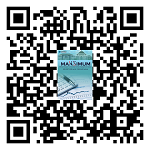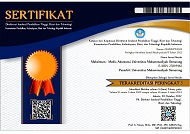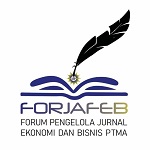The Impact of Commitment, Attitude, Subjective Norm and Perception of Behavioral Control on Intention to do Whistleblowing
(1) POLITEKNIK HARAPAN BERSAMA TEGAL
(2) POLITEKNIK HARAPAN BERSAMA TEGAL
(*) Corresponding Author
Abstract
In institutions, the role of the whistleblower is often used to reduce the number of internal fraud that occurs, for example in goods procurement activities, asset embezzlement activities and other fraudulent activities. This research was to determine the consequence of commitment, attitude, subjective norms and perceived behavioral control on the intention to do whistle blowing in Harapan Bersama Polytechnic. This research is to make all of the information such as goods procurement to be more transparent. This research uses primary data sources obtained from distributing questionnaires to respondents, namely all employees of Harapan Bersama Polytechnic. The outcomes of this research are that there is an control of attitude variable on an intention to do the Whistle Blowing. For variable commitment, subjective norms and views of behavioral control have no effect on the aim to do the Whistle Blowing.
Keywords
Full Text:
PDFReferences
Ademola, S. A., Musa, A. S., & Innocent, I. O. (2019). Moderating Effect of Risk Perception on Financial Knowledge, Literacy and Investment Decision. American International Journal of Economics and Finance Research, 1(1), 34–44. https://doi.org/10.46545/aijefr.v1i1.60
Agustin, R., Nurcahyono, N., Sinarasri, A., & Sukesti, F. (2023). Financial Ratio and Stock Returns in Indonesia Equity Markets : A Signaling Theory Approach. International Conference on Business, Accounting, Banking, and Economics, 277–292. https://doi.org/10.2991/978-94-6463-154-8
Ajzen, I. (1991). The theory of planned behavior. Organizational Behavior and Human Decision Processes, 50(2), 179–211.
Alao, A. A. (2016). Analysis of Fraud in Banks : Evidence From Nigeria. International Journal of Innovative Finance and Economics Research, 4(2), 16–25.
Anisa, O. N., Agung, R. E. W., & Nurcahyono, N. (2022). Faktor-Faktor yang Mempengaruhi Harga Saham: Berdasarkan Signaling Theory. Jurnal Akuntansi Indonesia, 11(2), 85–95.
Ariyanto, D. (2020). Influence of justice, culture and love of money towards ethical perception on tax evasion with gender as moderating variable. Journal of Money Laundering Control, 23(1), 245–266. https://doi.org/10.1108/JMLC-06-2019-0047
Caroline, H. I., Minarso, B., & Nurcahyono, N. (2023). Determinan Opini Audit Going Concern : Studi Kasus Perusahaan Sektor Industri Barang Konsumsi. 7(1). https://doi.org/10.18196/rabin.v7i1.17082
de Chernatony, L. (1999). Brand Management Through Narrowing the Gap Between Brand Identity and Brand Reputation. Journal of Marketing Management, 15(1–3), 157–179. https://doi.org/10.1362/026725799784870432
Dechow, P. M., Sloan, R. G., & Sweeney, A. P. (1996). Causes and consequences of earnings manipulation: An analysis of firms subject to enforcement actions by the SEC. Contemporary Accounting Research, 13(1), 1–36.
Evia, Z., Santoso, R. E. Wi., & Nurcahyono, N. (2022). Pengalaman Kerja, Independensi, Integritas, Kompetensi dan Pengaruhnya terhadap Kualitas Audit. Jurnal Akuntansi Dan Governance, 2(2), 141. https://doi.org/10.24853/jago.2.2.141-149
Górecki, M. A., & Letki, N. (2021). Social Norms Moderate the Effect of Tax System on Tax Evasion: Evidence from a Large-Scale Survey Experiment. Journal of Business Ethics, 172(4), 727–746. https://doi.org/10.1007/s10551-020-04502-8
Gunawan, B., & Putra, H. C. (2021). Empirical Study of Manufacturing Companies Listed on the Indonesia Stock Exchange and Malaysia Stock Exchange Period 2017-2018. International Conference on Sustainable Innovation 2020-Accounting and Management, 176(ICoSIAMS 2020), 113–120.
Huda, N., Hulmansyah, H., & Rini, N. (2018). Faktor Yang Mempengaruhi Perilaku Konsumsi Produk Halal Pada Kalangan Mahasiswa Muslim. EKUITAS (Jurnal Ekonomi Dan Keuangan), 2(2), 247–270. https://doi.org/10.24034/j25485024.y2018.v2.i2.3944
Hutapea, M. D., & Hapsari, A. N. S. (2021). Uncover Potential Fraud and its Mitigation Efforts in the Assistant Corps. Asia Pacific Fraud Journal, 6(1), 52–64.
Ibrani, E. Y., Faisal, F., Handayani, Y. D., & Ntim, C. G. (2019). Determinant of non-GAAP earnings management practices and its impact on firm value Determinant of non-GAAP earnings management practices and its impact on firm value. Cogent Business & Management, 6(1). https://doi.org/10.1080/23311975.2019.1666642
Jensen, M. C., & Meckling, W. H. (1976). Theory Of The Firm: Managerial Behavior, Agency Cost and Ownership Structure. Journal of Financial Economics 3, 72(10), 1671–1696. https://doi.org/10.1177/0018726718812602
Jogiyanto, H. . (2010). Teori Portofolio dan Analisis Investasi. BPFE Yogyakarta.
Kartika, N., & Iramani, R. (2013). Pengaruh Overconfidence, Experience, Emotion Terhadap Risk Perception Dan Risk Attitude Pada Investor Pasar Modal Di Surabaya. Journal of Business and Banking, 3(2), 177. https://doi.org/10.14414/jbb.v3i2.235
Lind, T., Ahmed, A., Skagerlund, K., Strömbäck, C., Västfjäll, D., & Tinghög, G. (2020). Competence, Confidence, and Gender: The Role of Objective and Subjective Financial Knowledge in Household Finance. Journal of Family and Economic Issues, 41(4), 626–638. https://doi.org/10.1007/s10834-020-09678-9
Mabula, J. B., & Ping, H. D. (2018). Use of technology and financial literacy on SMEs practices and performance in developing economies. International Journal of Advanced Computer Science and Applications, 9(6), 74–82. https://doi.org/10.14569/IJACSA.2018.090611
Murdijaningsih, T., Bariyah, S., & Danuta, K. S. (2022). Determinant Analysis of Audit delay: Empirical Study on Companies in the Consumer cyclical Sector. Procedia of Social Sciences and Humanities, 3(c), 460–467. https://doi.org/10.21070/pssh.v3i.139
Proctor, S. L. (2022). Rewarding recovery: the time is now for contingency management for opioid use disorder. Annals of Medicine, 54(1), 1178–1187. https://doi.org/10.1080/07853890.2022.2068805
Purnama, I. A., & Kusumawardhani, I. (2020). Mitigating Budgetary Slack with Moral Imagination and Clawback Provisions: An Experimental Study. Advances in Economics, Business and Management Research, 144(Afbe 2019), 96–100. https://doi.org/10.2991/aebmr.k.200606.015
Reniati, R. S. W. M. A. (2020). Financial Performance and Corporate Social Responsibility on Return of Shares. Jurnal Akuntansi, 23(3), 409. https://doi.org/10.24912/ja.v23i3.611
Saleem, E., & Alzoubi, S. (2018). Audit quality , debt fi nancing , and earnings management : Evidence. Journal of International Accounting, Auditing and Taxation, 30(December 2017), 69–84. https://doi.org/10.1016/j.intaccaudtax.2017.12.001
Sharif, A., Aloui, C., & Yarovaya, L. (2020). COVID-19 pandemic, oil prices, stock market, geopolitical risk and policy uncertainty nexus in the US economy: Fresh evidence from the wavelet-based approach. International Review of Financial Analysis, 70(April), 101496. https://doi.org/10.1016/j.irfa.2020.101496
Suun, M. (2021). Several factors affect the audit quality in South Sulawesi Inspectorate. ATESTASI : Jurnal Ilmiah Akuntansi, 4(1), 37–44. https://doi.org/10.33096/atestasi.v4i1.675
Uwuigbe, O. R., Olorunshe, O., Uwuigbe, U., Ozordi, E., Asiriuwa, O., Asaolu, T., & O Erin. (2019). Corporate Governance and Financial Statement Fraud among Listed Firms in Nigeria Corporate Governance and Financial Statement Fraud among Listed Firms in Nigeria. International Conference on Energy and Sustainable Environment. https://doi.org/10.1088/1755-1315/331/1/012055
Wati, L. N., Pirzada, K., Ramdany, & Momon. (2020). Determinants of Accounting Conservatism in Politically Connected Firms. Journal of Security and Sustainability Issues, 10(1), 189–201. https://doi.org/10.9770/jssi.2020.10.1(14)
Wilevy dan Augustina Kurniasih, W. (2021). Financial Distress of Registered Banking in Indonesia STOCK Exchange: Review of the Good Corporate Governance Aspect and Banking Performance. European Journal of Business and Management Research, 6(2), 181–186. https://doi.org/10.24018/ejbmr.2021.6.2.832
Yazar Soyadı, Y. A., Ismail, K. N. I. K., Amran, N. A., & H. Mohammed, N. (2019). Audit Quality and Accounting Conservatism. Journal of Accounting Finance and Auditing Studies (JAFAS), 5(2), 1–23. https://doi.org/10.32602/jafas.2019.17
Ye, J., & Kulathunga, K. M. M. C. B. (2019). How does financial literacy promote sustainability in SMEs? A developing country perspective. Sustainability (Switzerland), 11(10), 1–21. https://doi.org/10.3390/su11102990
Yendrawati, R. (2019). The Influence of the Fraud Triangle and Islamic Ethics on Academic Fraudulent Behaviors. Review of Integrative Business and Economics Research, 8(4), 441–457.
Article Metrics
Abstract view : 230 timesPDF - 4 times
DOI: https://doi.org/10.26714/mki.13.1.2023.97-102
Refbacks
- There are currently no refbacks.
-----------------------------------------------------------------------------------------------------------------------------------------------------------------------------------
 | MAKSIMUM: Media Akuntansi Universitas Muhammadiyah Semarang |
![]()
Maksimum: Media Akuntansi Universitas Muhammadiyah Semarang is licensed under a Creative Commons Attribution Attribution-NonCommercial-NoDerivatives 4.0 International License.

















